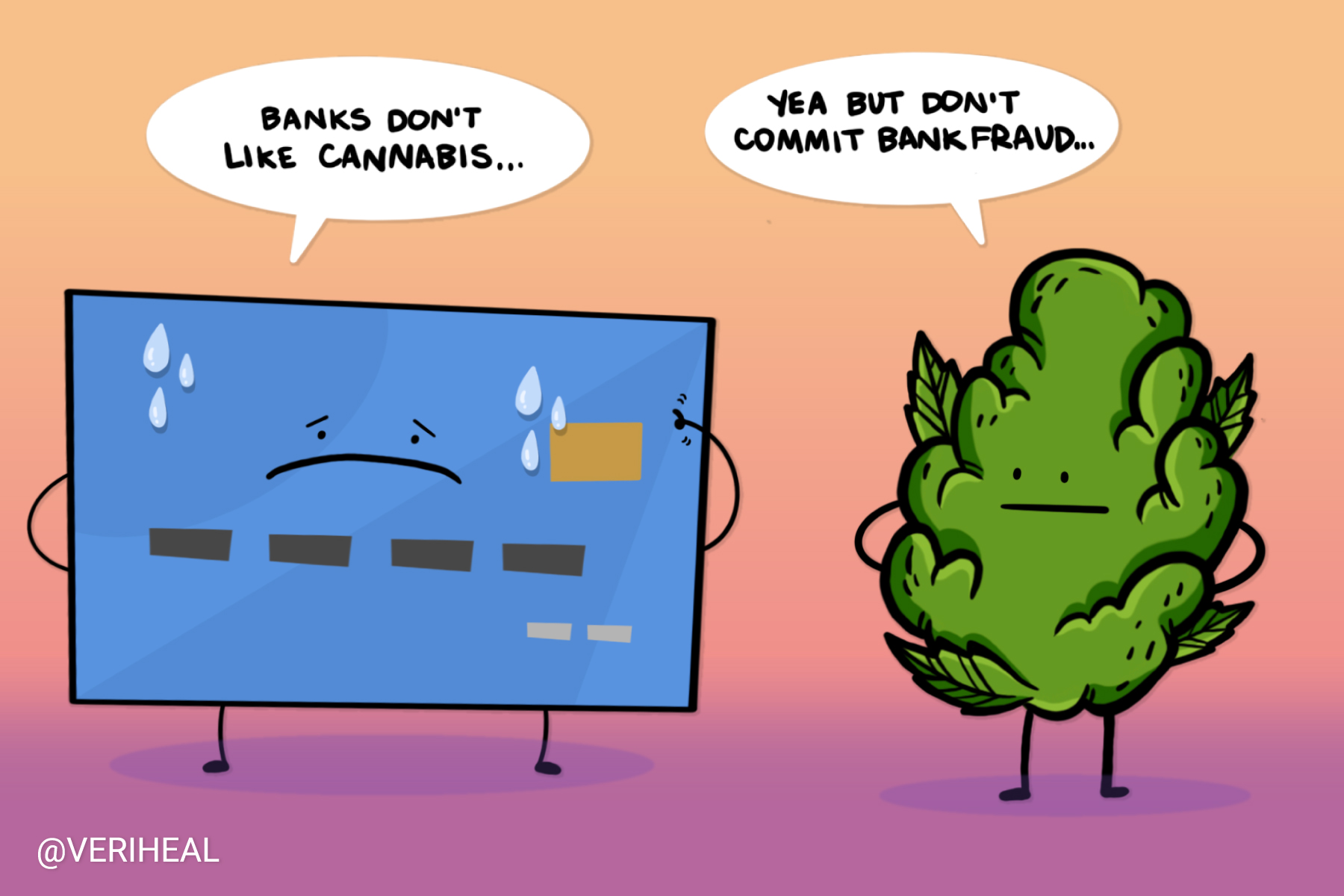Jim Patterson, the former head of the Eaze cannabis delivery company, has pleaded guilty to committing bank fraud while he was still active as CEO. Specifically, the allegations were that he conspired with at least two others—Hamid Akhavan and Ruben Weigand—to deceive banks into processing more than $100 million worth of credit and debit payments for cannabis purchases. The scheme was designed to disguise the purchases so as to create the impression that they were unrelated to the purchase of cannabis. This is considered money laundering. How did this crime come to be committed? Why was it deemed necessary? And what are the implications for other businesses? We’ll unpack what happened at Eaze and what it might mean for others in the cannabis industry.
Why Commit Bank Fraud?
If you’ve been to a dispensary recently, you might have noticed that you were unable to use your credit or debit card to pay for your purchases. That’s not a universal truth, but it is very common—many dispensaries only accept cash. That’s because cannabis is still illegal at the federal level. Among other things, that means federal institutions—like banks—aren’t required to recognize the legitimacy of cannabis businesses, even if those businesses are operating legally.
For some cannabis businesses, that means they simply can’t offer payment by credit or debit. For others, it means the process of gaining access to these services is too complicated to figure out. Opening a business in the cannabis sector is already complex and difficult, and this just makes it that much harder for businesses to succeed. In 2021, after all, many people don’t carry cash. Limiting customers to cash purchases means they might be required to leave the dispensary, visit an ATM, and then return. That adds a lot of extra steps to the purchase process for customers and all but eliminates the possibility of an impulse buy.
Why You Should Get Your Medical Marijuana Card
Veriheal has satisfied millions of patients nationwide by giving them access to these benefits
- Larger purchase limits
- Peace of mind
- Enhanced legal protection
- Access to higher potency strains
- Save up to 25% on cannabis purchases
- Skip the line at the dispensary
None of this is an excuse for money laundering, of course. But it does lay some groundwork for why Patterson might have felt the need to cheat to compete. Patterson himself backs this up, saying that he “understood that if banks were aware of the nature of the transactions they would not allow them”. Unfortunately, fraud is no stranger to the cannabis industry. Because of cannabis’ federal status, the industry is left open for individuals to take advantage of unethical business practices to stay afloat, even bank fraud.
Can Businesses Accept Credit Card Payments?
So, what’s the right thing to do if you’re in the cannabis business? You want your business to be competitive, of course, but you also want to play by the rules to stay in the game. Answers are on the way. While it’s frustrating that we haven’t seen federal legalization yet, the House of Representatives did recently reintroduce the Secure and Fair Enforcement Banking Act. If this act is ever signed into law, it will prohibit banking regulators from barring financial institutions from offering their services to cannabis businesses. That would open a lot more doors for cannabis companies looking to institute credit and debit card payments as a viable means of purchase within their stores. In the meantime, entrepreneurs are getting creative when it comes to finding solutions to this problem. In Utah, for example, those wishing to purchase cannabis can use the Hypur App. Although Utah has still legalized cannabis for medical use only, when it comes to payment methods, they’re breaking ground.
Owning and operating cannabis businesses is a challenge. Even if cannabis has been fully legalized in your state, without full federal support, there are a lot of struggles and issues that cannabis businesses are going to have to wrestle with, and those can be hard to solve. As we move forward, we hope that the government will put more systems in place to help these businesses thrive.
Author, Share & Comments
















